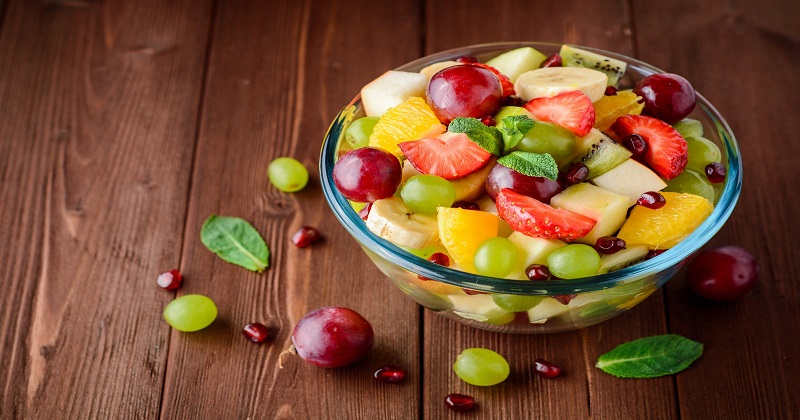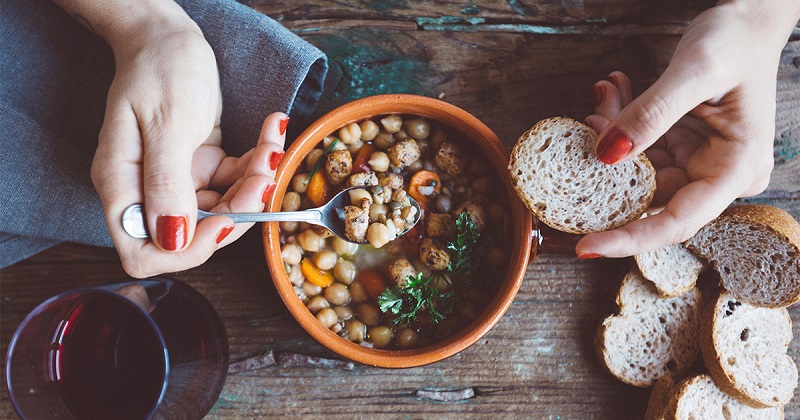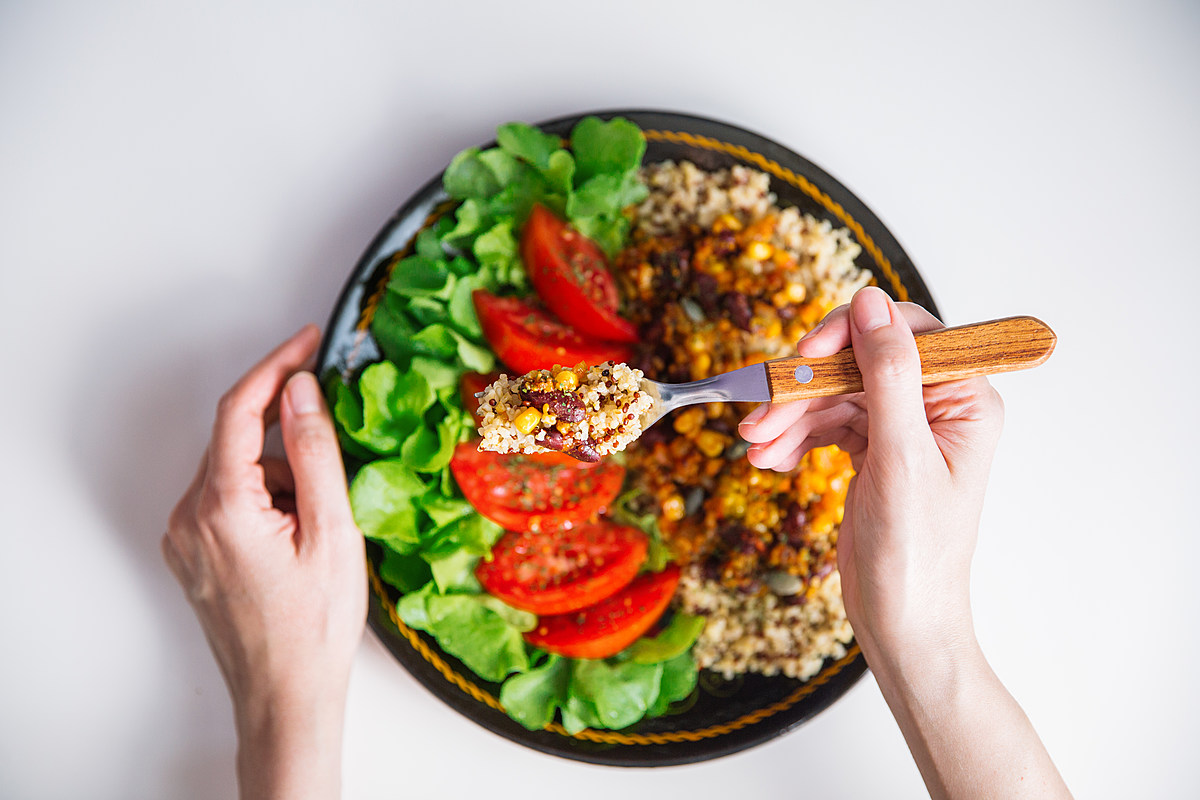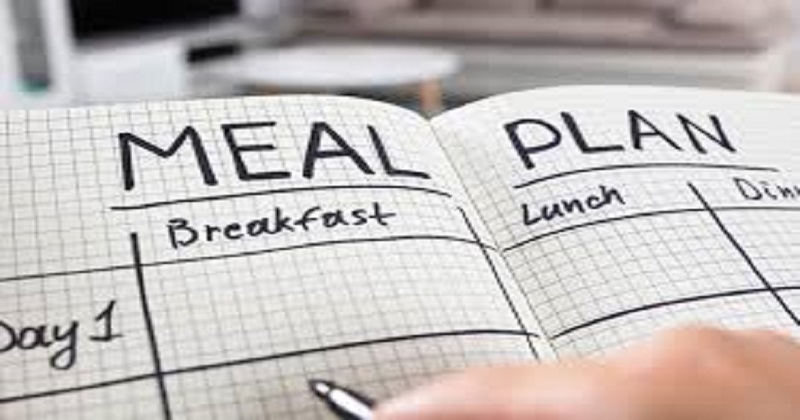
Fasting and feasting are both part of Indian culture and festivals. Fasting during Navaratri is very common among Hindus. Navaratri occurs twice a year during the seasonal change period, during which the human body is most vulnerable. Thus, during this nine-day festival, people avoid non-vegetarian sources, onion, garlic, grains, alcohol, and smoking. However, the type and duration of fast differ from person to person. Fasting boosts immunity, brings down LDL cholesterol levels, improves gut bacteria, improves strength and vitality, and improves hormone levels, among others.

However, there are some ways to adhere to fasting. Before starting a fast, offer hydrating fruits and vegetables. This helps them burn calories gradually throughout the day while keeping them hydrated and satiated. It is a reminder not to overindulge. Additionally, salt stimulates thirst, so avoid salty foods. Instead of deep-frying, opt for air-fried and baked foods. You might feel tired the next day if the food is very oily or greasy. Ensure that your diet during Navaratri contains all nutrients. It involves complex carbohydrates, which include a variety of grains, a vegetarian source of protein, and antioxidant-rich fruits and vegetables. Diets like this help to detoxify the body of toxins and build immunity. Meal rules: 30% carbohydrates + 30% proteins + 30% vegetables.

During Navaratri, can pregnant women fast?
Mothers who are expecting are not allowed to fast for long periods because it may affect the baby’s growth. With the doctor’s consent, pregnant women can fast, but they should make sure that they take small frequent nutrient-rich meals throughout the day. The quality of nutrients is more important than the quantity for pregnant mothers. Consuming healthy foods at regular intervals is crucial since the nutrients are going to the growing child. Hydration during the fasting period is also very important. During pregnancy, pregnant mothers must balance macronutrients and micronutrients properly.

Don’t forget to start the day with fruit, milk, or nuts that are high in fiber and protein. For breakfast, try fruit yogurt with nuts and seeds, milkshakes, or even smoothies. Drink tender coconut water, lassi or buttermilk in the middle of the day to hydrate. Lunch should consist of either millets or rice with a gourd vegetable and a fiber dense vegetable for fiber, along with curd/paneer/tofu for protein. To reduce unhealthy and carbohydrate-based cravings, try vegetable soups in the evening with makhana or any fruit or vegetable salad. Dinner can be kichadi or Rotis with proper balance and a dry fruit milkshake or milk. A good amount of carbohydrates, protein, and fruits & vegetables will improve the child’s overall development.

Expecting Mothers Tips
- Whole grains provide energy and fiber. They include buckwheat, sabudana, millets, ragi, amaranth, and saak.
- With each meal, choose vegetarian sources such as paneer, curd, milk, tofu, legumes, and sprouts. These foods promote muscle growth.
- Take in a lot of fruits and vegetables to boost your antioxidant level, such as apple, pear, potato, pumpkin, lauki vegetables, etc.
- To boost your metabolism, drink water and other fluids such as soups and porridges.
- To get the natural sugars and build immunity, avoid sugars and sweets, and replace them with nuts and fruits.
- Avoid deep-fried and packed foods, as well as caffeine, which generally slows down your metabolism.
- Avoid full cream milk and condensed milk because they can overload the system and cause lethargy.
- Include vitamin A-rich foods on your diet this season, such as carrots, pumpkin, sweet potatoes, oranges, muskmelon, etc.
- Keep your energy up and function well throughout the day by eating small, frequent meals.

Tips for diabetic individuals
- To maintain optimum blood glucose levels, people with diabetes should eat regularly.
- The timing of meals, wise selection, dietary modification, healthy recipes, and nutritional needs should be explained to them.
- It is important to monitor blood glucose levels and avoid sweets and junk food.
- Fasting is not allowed for people with Type I DM. Type II patients can fast with the advice of a physician if they have adequate medications and if their sugars are under control.
- Dehydration and hypoglycemia are possible risks. It is therefore advisable to break the fast in case of hypoglycemia to prevent further complications.
- Following main meals is the best time for physical activity.

Sample Diet Plan
- Breakfast- The menu includes banana or chickoo shakes with nuts or seeds, buckwheat poori, multigrain kozhukattai, adai, millet Pongal, fruit smoothies with yogurt and nuts.
- Mid-morning: Buttermilk, coconut water, Fox nut kheer, fruits and nuts
- Lunch: Samak rice with sauteed vegetables + curd/ Kuttu chapati with pumpkin + paneer subji/ Millet rice with lauki subji and sundal/ Amaranth roti with subzi + curd
- Post lunch: Douse in Jeera or drink green tea
- Evening Snack: Sabudana vadas, buckwheat momos, wheat flour appams, dry fruit laddoos, sundals, soups, cucumber tomato salads, fruit yogurt.
- Dinner: Fruits and milk/ fruit smoothies/jowar rice upma
- Bedtime: Milkshake with dry fruit
Read more: Fasting for the first time during Navratri? Few things to keep in mind
You can get the benefits of fasting provided you balance your meal properly. Wishing you healthy and mindful eating during this festive season.

Post Your Comments